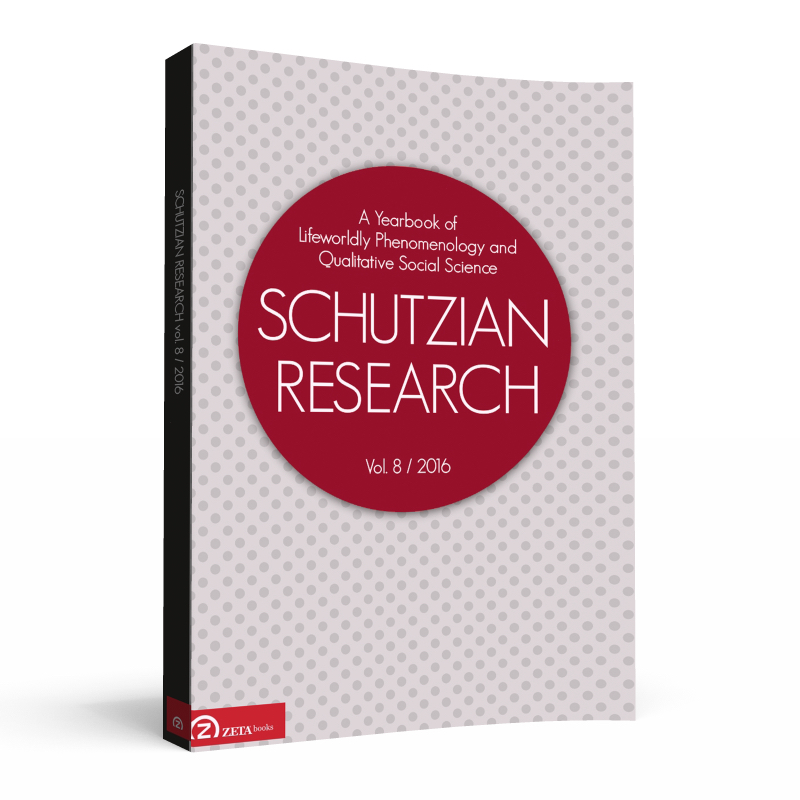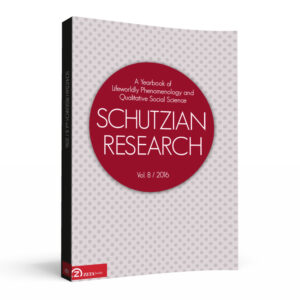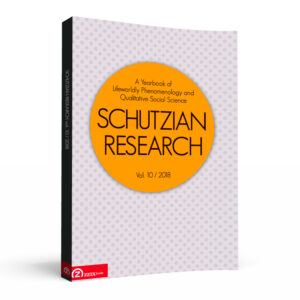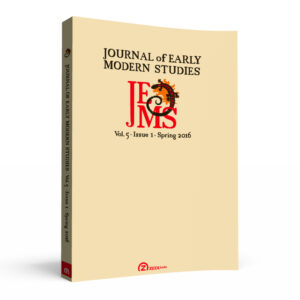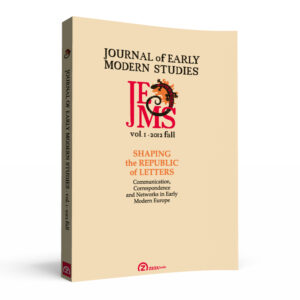Table of Contents
Michael D. Barber: Introduction to Schutzian Research 8
Marina Banchetti: Schutz’s Contribution to a Philosophical Dialogue at the Royaumont Conference in 1957
- Abstract: This paper, a transcription and translation, by Marina Banchetti, of two memories of Edmund Husserl that Alfred Schutz recounted as part of a panel of philosophers discussing their memories of Husserl at Royaumont in 1957. One memory concerned Husserl lecturing in Prague without notes on the dignity of philosophy. The other had to do with Schutz ordering oranges for Husserl during his final illness.
Benita Luckmann: Alfred Schutz and Aron Gurwitsch at the New School for Social Research
- Abstract: This never published paper by Benita Luckmann describes the origins and uniqueness of the New School for Social Research. It portrays Alfred Schutz’s arrival in the United States, his reasons for working at the New School, his exchange with Talcott Parsons, the debate over his presentation of the Stranger in the General Seminar, and his many efforts to recruit Aron Gurwitsch to the New School. It also provides an account of Gurwitsch’s experience of life in exile, his friendship with Schutz, and his time at the New School after Schutz’s death.
María-Luz Pintos-Peñaranda: Aron Gurwitsch at the Dawn of French Phenomenology: From a Relative Invisibility to an Indelible Mark
- Abstract: A network (1) of dates, persons, activities and publications relating to the beginning of phenomenology in France is listed below, thus enabling to substantiate the direct objective of this essay: (2) estimate how much Aron Gurwitsch contributed to the reception of phenomenology in France during the 1930s, to what extent he contributed, how and when. (3) The indirect objective is to establish the legacy of Gurwitsch in France after he was exiled to the United States. (4) Another objective is related tacitly with this: to show that in his Parisian stage Gurwitsch was not merely in a kind of transit, unimportant, “between” the life of the novice researcher in Germany and life of the relevant phenomenolgist in the US. He played an important role in France. This to the point that without Gurwitsch, probably French phenomenology would not have followed the path it followed in the years after his departure. (5) Yet, paradoxically, this crucial role was exercised implicitly and has had to be explicated.
Jan Straßheim: The problem of ‘experiencing transcendence’ in symbols, everyday language and other persons
- Abstract: Alfred Schutz made a point which is crucial for understanding communication and social coordination. Through symbols, signs or indications we experience that which transcends our experience. However, Schutz never solved the conceptual problems his claim implied. A solution is proposed through constructive criticism of Schutz. Symbols, signs and indications are based on typical expectations. In contrast, ‘experiences of transcendence’ are analyzed as experiences which deviate from typical expectations due to a tendency inherent to experience, as opposed to deviations prompted by the frustration of types. Such experiences are shown to be constitutive of our use of symbols, our use of language, and our relation to individual others. Experiences of transcendence do not passively reflect the situation, but they are motivated in their selectivity by ‘anxiety.’ Anxiety is phenomenologically understood as the expectation of atypical experiences. While anxiety motivates deviations from types, it is itself motivated by previous frustrations of types. Through this dynamics of motivation, experiences of transcendence and typical experiences refer to each other. Even so, the two categories are logically distinct. The possibility of communication and social coordination can only be explained by assuming, in addition to shared types, anxiety as a shared readiness to transcend types.
Michael M. Hanke: Schutz’ Semiotics and the Symbolic Construction of Reality
- Abstract: Some decades before Umberto Eco refounded semiotics in the sixties, Alfred Schutz had already elaborated a theory on signs and symbols. Moreover, as Schutz himself affirms, neither was he the first to do so. The thoughts of Charles Sanders Peirce had already clearly influenced American pragmatism, and thinkers like George Herbert Mead and Ernst Cassirer had developed a theory of symbols, both referred to by Schutz in his later works. Nonetheless, sign theory was already present in his first book, Der sinnhafte Aufbau der sozialen Welt, and can be traced to the influence of Edmund Husserl. Schutz’s focus on the analysis of the relationship between individual and society fomented his perception of the importance of intermediary communication and sign processes as the setting and interpretation of signs, “Zeichensetzung und Zeichendeutung”, reflections that in his later working phase resulted in a proper sign theory, which is analyzed in the following article. Based on Husserl’s concept of pairing, Schutz here develops his theory of appresentational references, comprising a subdivision of: marks, indications, signs and symbols. This involves the concept of representation, a relationship between the signifier and the signified, and a subjective as well as constructive interpretation by actors. Consequently, this concept involves an objective sign system, a social situation and, as inserted into a process of communication, complementary producers (senders) and receptors (receivers) of signs and symbols. In the final comments the question is addressed whether, and in what sense, given the preceding theory of appresentational references, Schutz would hold that reality is a symbolic construction, as proposes the title of the 2016 conference on Schutz in Tokyo, The Symbolic Construction of Reality.
Jochen Dreher: Symbolic Reality Construction: A Bridge between Phenomenological Individualism and Pragmatic Realism
- Abstract: The particularly significant theory of the symbol of Alfred Schutz is based on a combination of the two perspectives of phenomenological individualism and pragmatic realism. This theory on the one hand explains processes of symbolic meaning constitution from a phenomenological viewpoint, specifically following Edmund Husserl. On the other hand it demonstrates the functioning of symbols through pragmatic social action, which is relevant for symbolic reality construction. The paper elaborates both perspectives within the Schutzian theory of the symbol with reference to diverse interpretations of Franz Kafka’s novel The Castle. It outlines the decisive capacity of symbols to overcome and harmonize diverse and often contradictory meanings that are expressed and at the same time united by the symbol itself.
Frederick J. Wertz: Outline of the Relationship Among Transcendental Phenomenology, Phenomenological Psychology, and the Sciences of Persons
- Abstract: Husserl focused perhaps more than any other philosopher on the relationship between philosophy and psychology. This problem was important to him because the European project of universal science must include sciences of consciousness that address questions of meaning, value and purpose so crucial for humanity. This paper provides a sketch of the later Husserl’s thinking on this issue in order to clarify the relationships among transcendental philosophy as the mother of the sciences, psychology as the foundational mental science, and the various regional sciences of persons. Radicalizing and extending the transcendental tradition to free philosophy from naturalism, Husserl developed methods and fundamental concepts for understanding consciousness in its distinctive world constituting function. In parallel fashion, Husserl traced the historical failures of psychology to its naturalistic philosophy, from which he liberated the discipline by means of phenomenological reflections on the intentional property of its subject matter. This pure focus on mental processes resulted in the clarification of the transcendental phenomenological foundation of psychology as well as a recognition of the paradoxical manner in which psychological processes are both world constituting and mundanely present in the lives of persons. The apperceptive synthesis of transcendental consciousness and mundane embodiment in the identification of the person is proposed as essential for a non-naturalistic, intentional psychology, which provides appropriate concepts and the method of intentional analysis for such sciences of persons as sociology, history, literary studies, and religious studies. The problems, means, and inevitable inadequacies of communicating transcendental insights in language are discussed. Analysis of the complexity of living persons discloses their transcendental dimension in the manifolds their mundane activities and in their products, including use, cultural, and art objects as well as social institutions. Attention is drawn to resources in phenomenology beyond Husserl and in the genuine psychological intuitions of non-phenomenologists for generating non-naturalistic, phenomenologically grounded person sciences.
Hermílio Santos: On Biography: A Schutzian Perspective
- Abstract: The paper explores biographical experiences for the understanding of social phenomena, both in the writings of Alfred Schutz himself and in sociological empirical approaches based on his work. Schutz handles biography at least in two different ways: as a manner to investigate the “because” motives for one’s action and as a way to exemplify his theoretical considerations. The first step will be to discuss the biographical experience as a key aspect to understand the motivation for action. It will be argued that for Schutz, biography is not exclusively an individual life’s trajectory, but results of both individual and social experiences, synthesized on the individual relevance systems, which are embedded by the relevance systems of the community in which one has been socialized. In the second step the paper verifies how Schutz deals with his own biographical experiences to discuss theoretical and empirical aspects of his sociology. Examples of the first kind of use of biography by Schutz are, for instance, “The Stranger” and “The Homecomer”, which will be considered in this paper. A third step aims to discuss how these writings influenced empirical researches in sociology based on biographical narratives as a way to access empirically the social construction of reality.
Carlos Belvedere: Why I cannot dance the Tango: Reflections of an incompetent member of the “milongas porteñas”
- Abstract: The purpose of this paper is to discuss the idea that members are fully competent at what they do. With that aim, I start with a Schutzian and Ethnomethodological account of what it is like to be a member of the tango scene in the dance halls of Buenos Aires. I specify different degrees and kinds of competences. On the one hand, there are fully competent members (sanctioned dancers) and incompetent members (the “beginners”). The incompetent members are the vast majority in comparison to the few fully competent ones. On the other hand, there are technically competent members and socially competent ones. Technical competence is very hard to acquire, thus it is very rare. Social competences, instead, are accessible to all members. These different ways of being a member are heterogeneous and indicate a significant diversity of competences and skills. I conclude that not all members are alike and that each one is challenged in a particular way.
ISSN: 2067-0621 (paperback)
ISSN: 2248-1907 (electronic)
ISBN: 978-606-697-045-7 (paperback)
ISBN: 978-606-697-046-4 (electronic)

